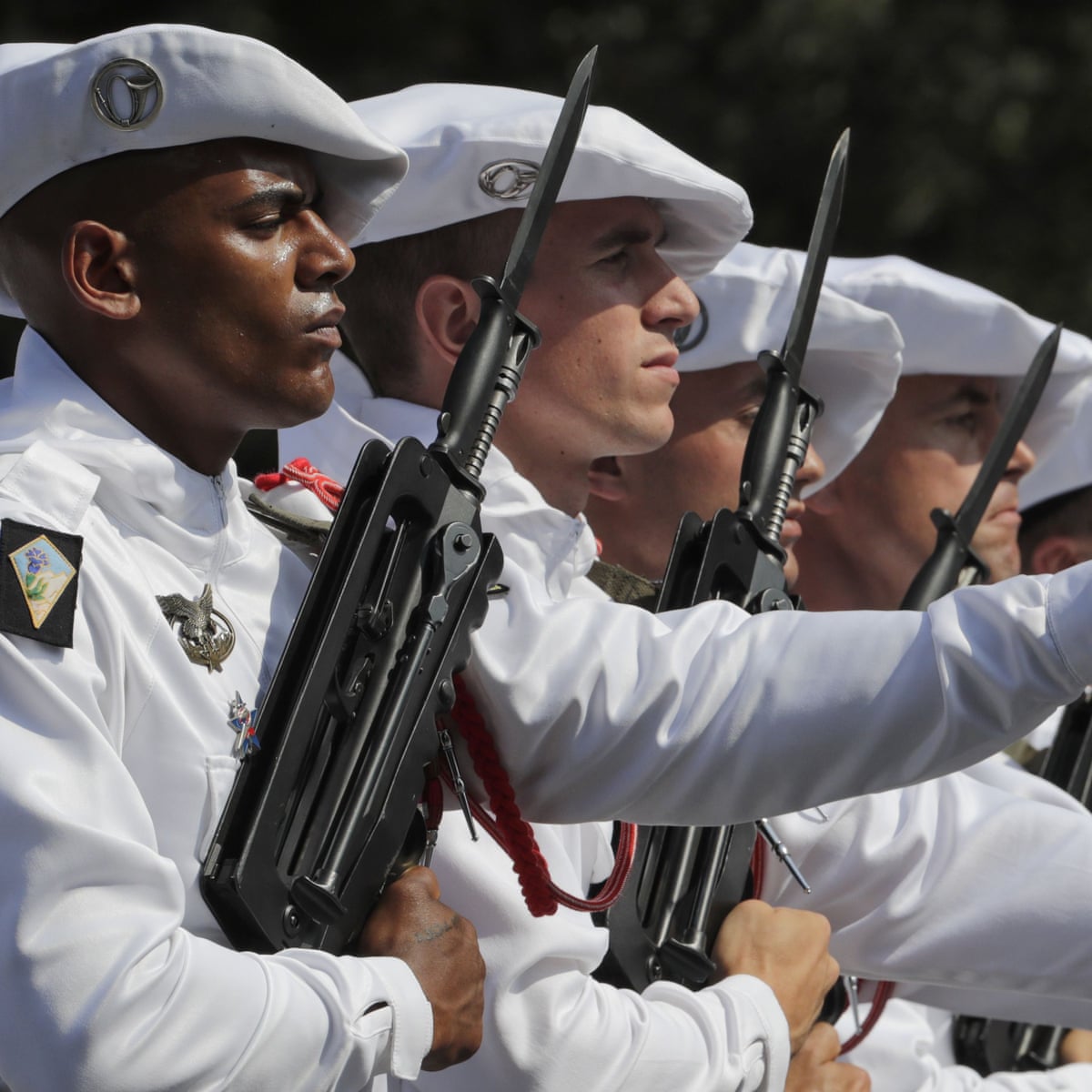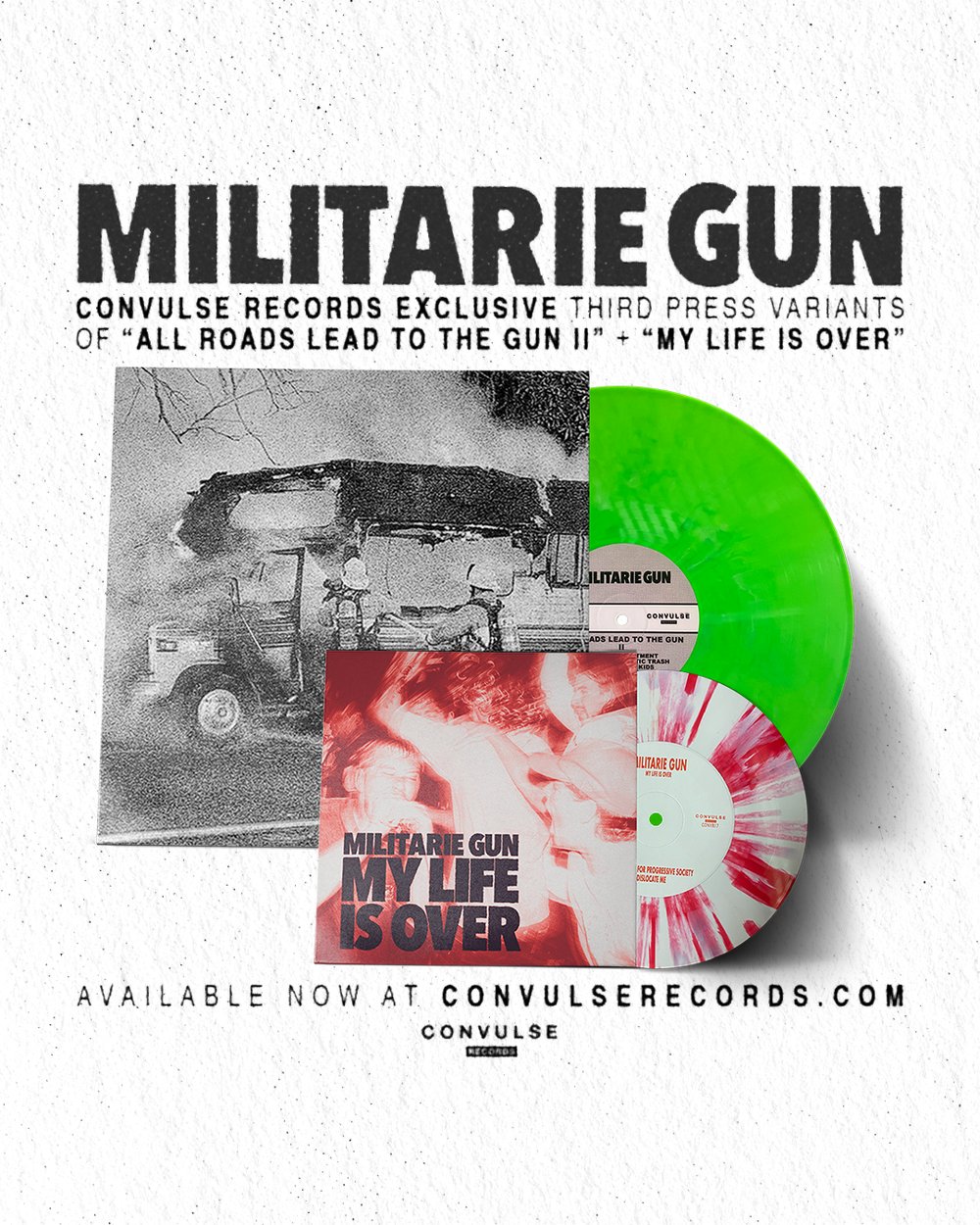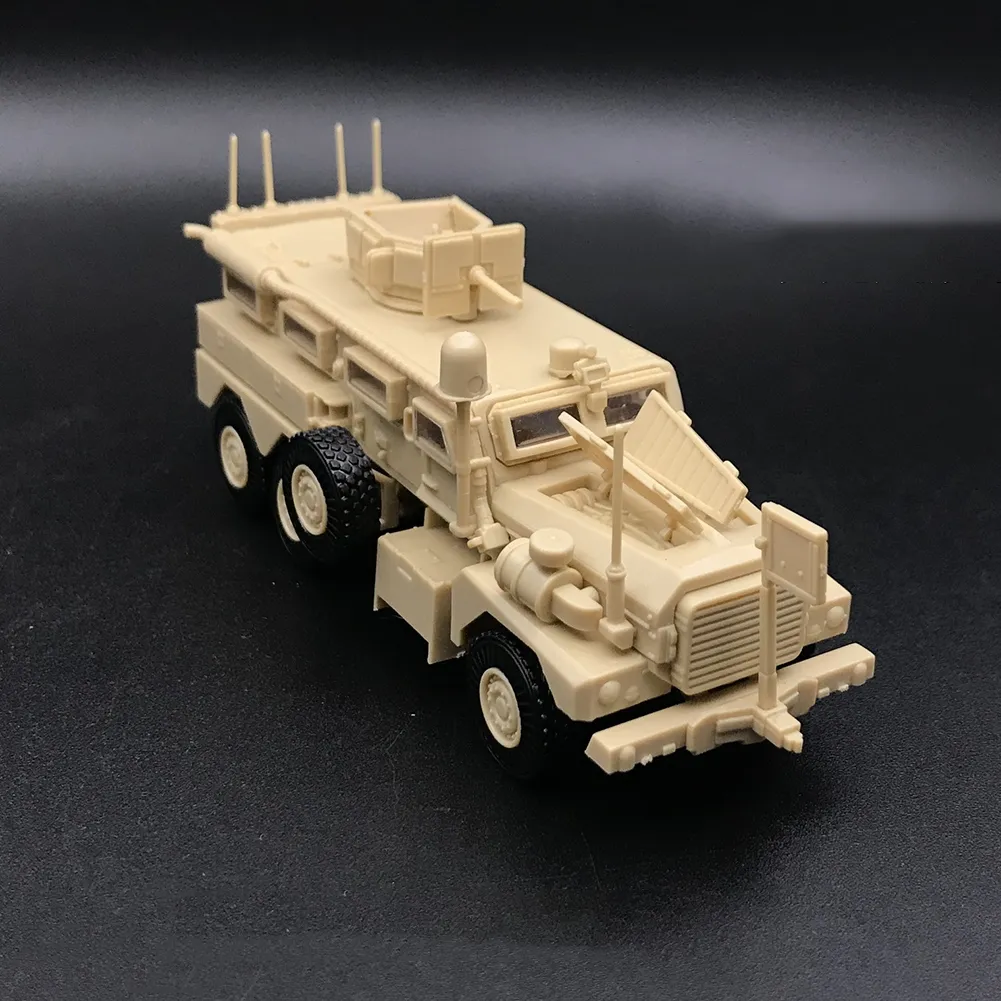Militarie Gun Band - There is very little about Ian Shelton's relationship with music that can be put into a box marked 'typical', except, as he sees it, where it all begins. "It's just a classic 'bastard discovers punk' situation," he laughs.
Ian grew up between the Bay Area and a small town in Washington State called Enumclaw. He developed an early appreciation for pop-punk when he moved north and - aggravated by an unstable relationship with school and a difficult home life after his alcoholic parents descended into an alcohol addiction - found a way out for those who are tough and keep an eye on. eye intensity of the DIY shows he began preparing in his teens.
Militarie Gun Band

"I'm [still] of the mind that if I don't like it, then I'll give you a damn reason not to like me," he told Stereogum last year, and that attitude carried over recently. the project.
Militarie Gun (regional Justice Center, Drug Church) Announce 2 New Eps, Share New Song
Breaking the barrier between hardcore and noise-rock, with a Guided By Voices-style melodic circuit, Militarie Gun's music is completely confrontational because it does something completely different from what people expect. by Ian, who has spent the last few years cracking open the skulls of the Regional Justice Center with merciless ferocity.
In a recent run with Touché Amoré, Vein.fm and Scowl, they were the team that was different in everything but attitude. "I'm used to a one-on-one relationship with the audience and I can't tell if they're enjoying something," Ian said. “But at the same time, Military Weapons still has an atypical sound. We will have people come, compare it to any kind of melodious and powerful music. The spectrum can be as offensive or cheap as possible.
It's impressive how fully formed Military Weapon was when the demo came out in the spring of 2020 and the 7" My Life Is Over came out a few months later. This was new and untested, but Ian was fully committed to enjoying his skin. , playing every instrument and delivering every beat with an attention-grabbing bark.
Ian began working at Military Arms shortly after COVID began to take hold, which resulted in a shift at the Regional Justice Center being extended. He spends hours in the practice space every day, putting together songs that play out in unexpected ways. During those suffocating weeks and months, as his normal life of touring and making music videos faded from view, the project began to appear in his mind as if it could be something he really needed to pursue properly.
Fiddlehead Militarie Gun
"I'm a big demo shipper," he said. “When I made one, I sent it to about 20 people and they were my first audience. I said, 'Yeah, I'm not going to start a band with this song, but I think the song is really good. Do you think it's cute? And they said, 'Yes, it is sick.' And I was like, 'Oh hell, people think it's sick, should I write more?'
“I gave the demo and it seemed to click in a more immediate way than anything else I've done. Part of it was the reaction that made me [realize], 'there might be potential in this.' And then I got so obsessed that I tried as hard as I could.
Since then, Militarie Gun has become a bona fide band, with William Acuña (guitar), Nick Cogan (guitar, also of Drug Church), Max Epstein (bass) and Vince Nguyen (drums) completing the lineup. They've released two more EPs, a collaborative single with pop master Dazy from Richmond, Virginia, and have begun touring regularly, including an upcoming UK tour around the show. their show at Outbreak Fest.

During this period of sudden growth, Ian continued to write music. In fact, his compositional technique has improved so much that Militaria Gun's new material sounds like it belongs in a different time period than what came before.
Militarie Gun Interview: Regional Justice Center's Ian Shelton On His New Band
The relationship with it changes, he admits, but less so than the emotion - in some ways it's harder to approach his writing. "I'm just like, 'I wish I could sing all these new songs that we haven't released, because I'm more proud of the melody and the lyrics. For me, that's why it's been a struggle to be a band with such a limited output. I still really love the songs from our first 7", but that's the trap of being a constant touring band, because we have to keep playing the same songs.
Military weapons are a compelling proposition in the ever-expanding landscape of Los Angeles, as they have an aesthetic that allows them to stand out among a variety of sub-genres.
“LA is a city within a city, it's huge, you know? There's the power-violence scene in South Central, the more hipster stuff in Silverlake, and the Valley has God's Hate and all these crazy, super-heavy bands,” he said. “You can do a lot of shows in LA without the same audience showing up twice. So far, we've only played two shows in LA. I definitely don't feel like we belong to anything and I've deliberately distanced myself from anything in particular so we can do whatever we want and not be restricted."
On that note, Ian notes that they are often added to playlists by popular hardcore bands as things like: 'Our Favorite Non-Hardcore Bands'. Maybe in some circles you still admit that you like to sing along?
Tours: Citizen/prince Daddy And The Hyena/militarie Gun/restraining Order (us & Can)
“We just kind of focused more on the melody and the catch and the pop sensibility as we went, so it would be really interesting to see people weigh in on what they want to say about it. me or whoever will start next. practical for us,” he smiles. "Personally, I think that the hardcore tradition was born from there. The hardcore of the first wave was much more melodic and the sound of all the bands was different. I think we sound different from our peers, that's the hardest thing you can do.
News Militarie Gun to release four new tracks on All Roads… deluxe edition Check out Militarie Gun's new video for Let Me Be Normal, taken from their upcoming release All Roads Lead To The Gun.
The best of ! delivered straight to your inbox three times a week. What are you waiting? When things went wrong, Ian Shelton drove straight to his gym and showed up with his new heavyweight band Militarie Gun.
It's March 2020, and Shelton has been rehearsing for South By Southwest with his violently violent band Regional Justice Center — he's the drummer, lead singer, and only permanent member. After that, SXSW was canceled. Then everything was fine. So here he is alone, pushing himself to the brink of insanity in his practice space every day, trying to face this terrifying unknown the only way he knows how. This will become Militarie Gun's first EP of 2020
Eg Distro Picks #24: Militarie Gun
“I'm not someone who has a day job. Shelton said. "There is nothing else in my life. So if my brain is set to 'I'm going to play music' and then I can't, then I don't feel like I have a reason to live.
Shelton was introduced to punk while growing up in the Bay Area; first Blink-182, then Operation Ivy and Rancid, Dead Kennedys and Anti-Flag. His hobbies became heavier and more aggressive as he got older, the more he felt like an outcast. As a teenager, he moved to Enumclaw, Washington, an "old red" mountain town famous for an ultimately fatal case of horse sex, and he needed an escape more than ever. "It's a very nice city," he said, "but the attitude and mentality is much less nice." There, punk rock formed his left-wing political consciousness, and his confrontational attitude has remained to this day: “I was suspended from school. It was a time of super conflict. I [still] have the mindset that if I don't like you, then I'll give you a damn reason not to like me.
Meanwhile, family life is full of turbulence. His parents were alcoholics, his adolescence was characterized by cycles of relapse and sobriety; carelessness followed by overcompensated severity. “It will [always] end up in some kind of bitter power struggle. My mom is sober now and we have a really great relationship. But there was a lot of chaos and trauma. At 15, he attended his first heavyweight show, hosted by Ceremonies, and what he found there amid a sea of limbs, sweat and skin was decisive. "There's nothing better in the world than singing 'I've got a problem, I'm a dirty baby' [from 'I Want To Put This To An']. That catharsis has become an obsession. That's why I think that I'm having a hard time making heavy punk records at almost 30, is that there's something I'm still trying to get out of myself that I haven't.
He then moved to Seattle and then LA, where he founded the Regional Justice Center after a string of less successful groups. This group has become a fixture











